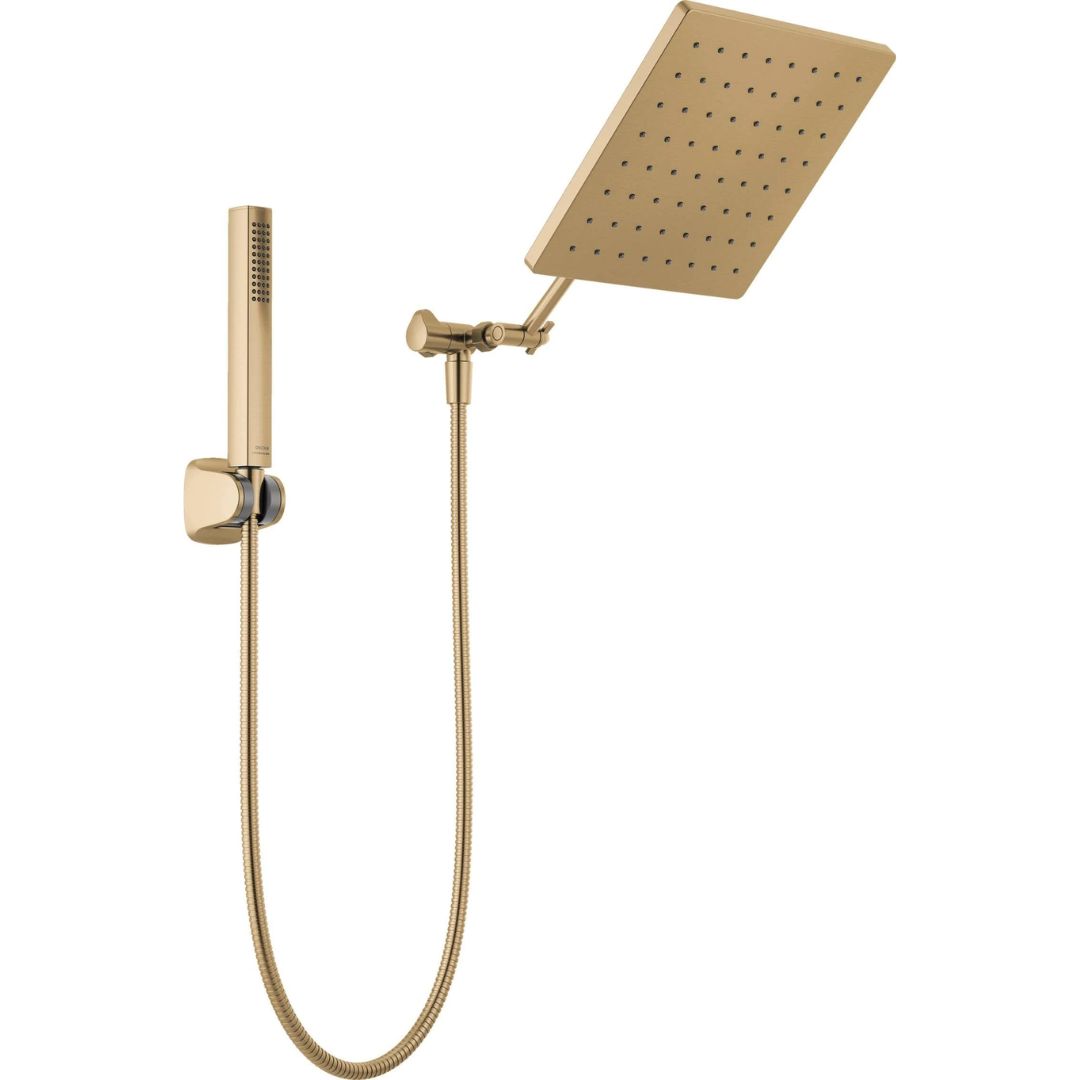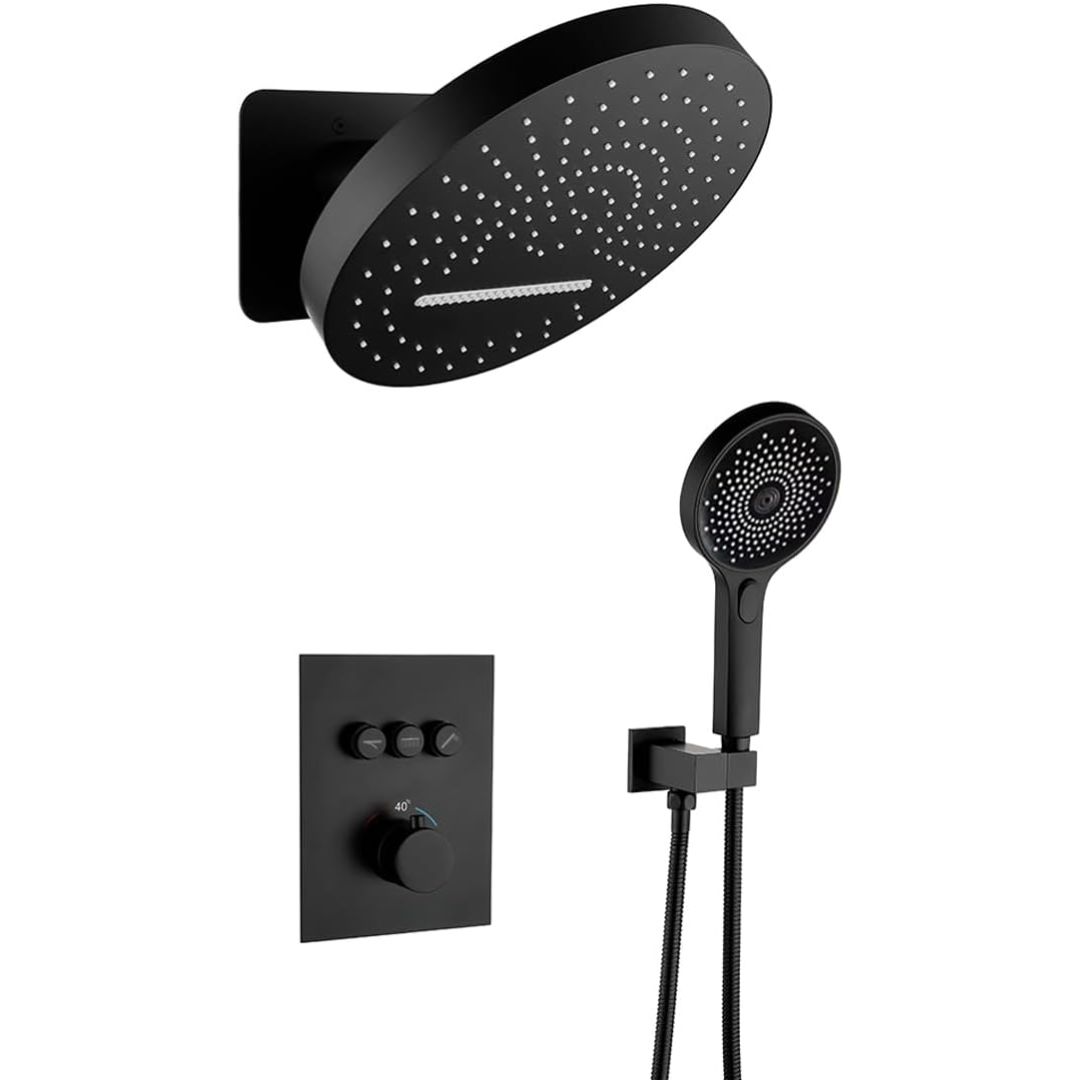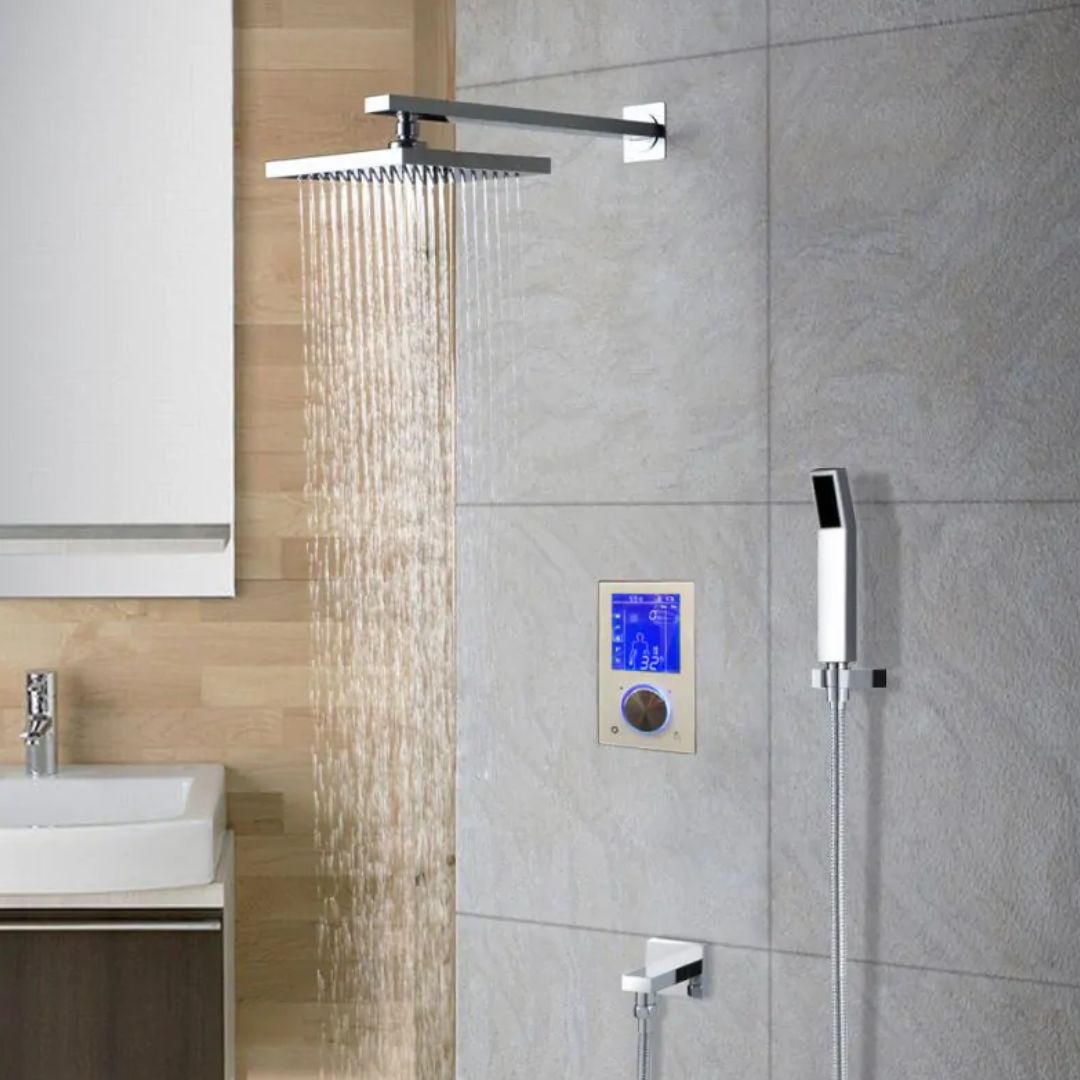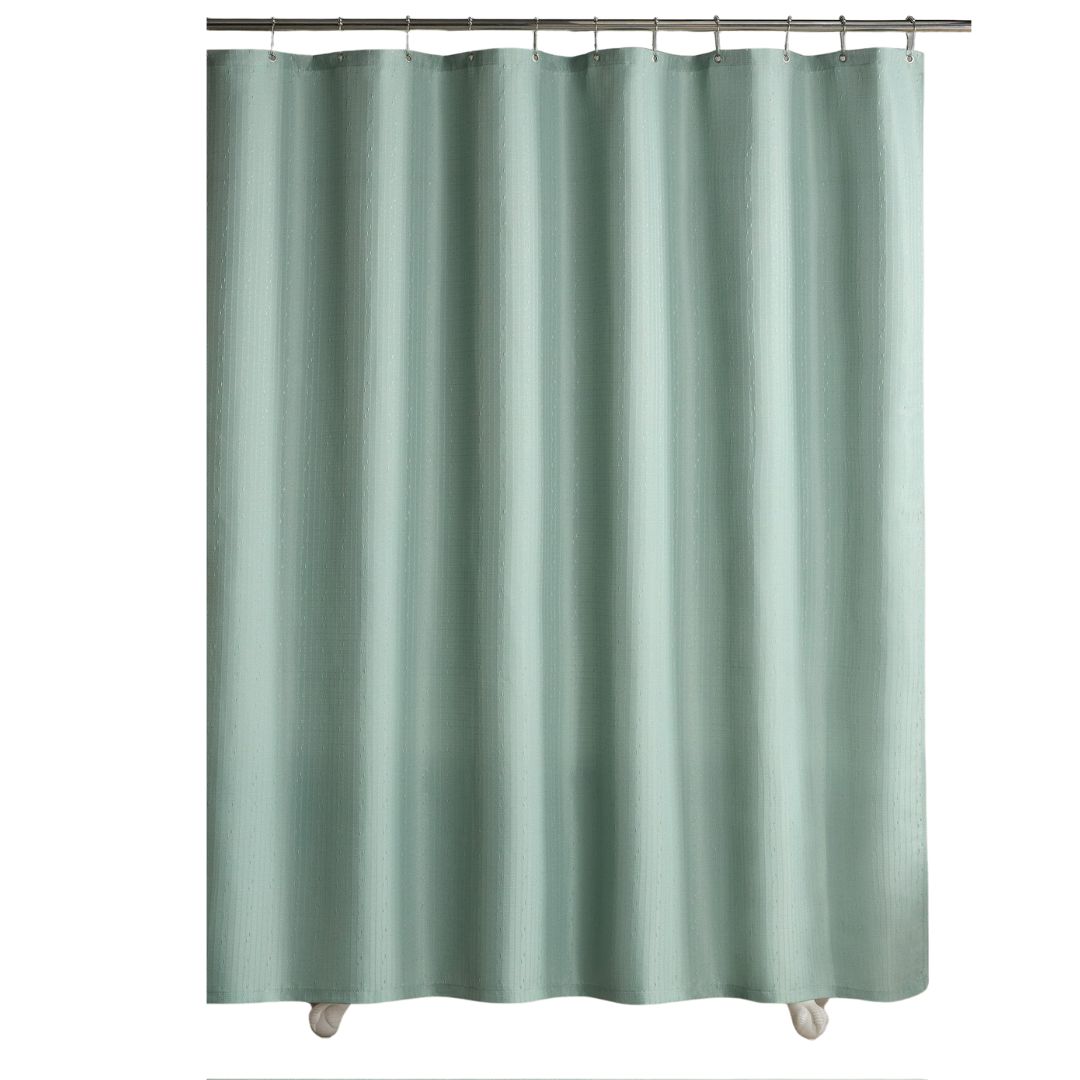8 Types of Showers to Consider for Your Next Remodel — Styles and Layouts Designers Are Using Now
There are all kinds of different varieties of shower you could choose for your bathroom, each with its benefits and drawbacks — these are the 8 designers want you to consider

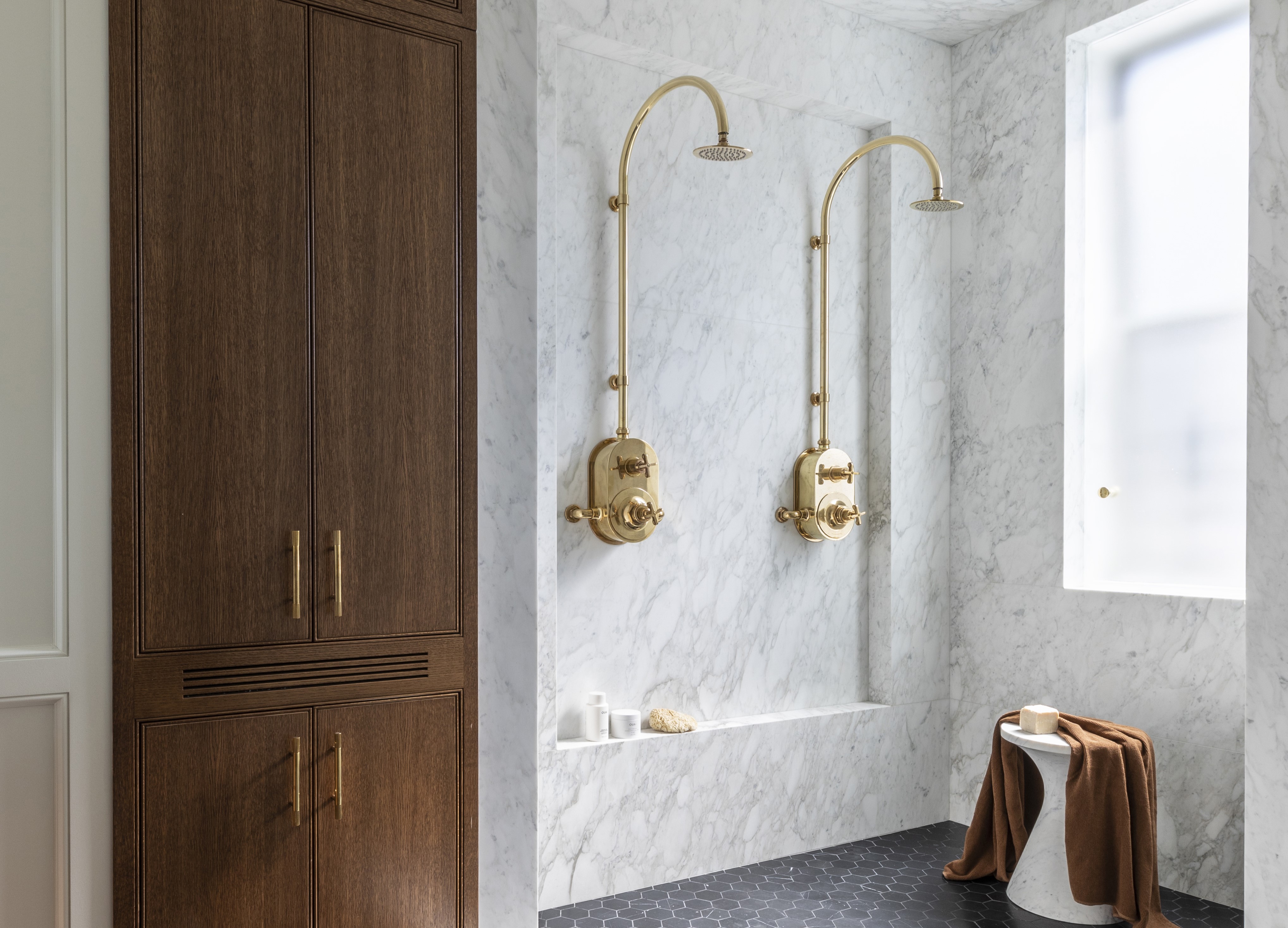
The Livingetc newsletters are your inside source for what’s shaping interiors now - and what’s next. Discover trend forecasts, smart style ideas, and curated shopping inspiration that brings design to life. Subscribe today and stay ahead of the curve.
You are now subscribed
Your newsletter sign-up was successful
The right shower can make all the difference to a bathroom — not just in terms of practicality, but good looks, too. Making the decision on the type of shower is, therefore, something you should give good consideration.
From the layout within the space, to how the shower enclosure is set up, these choices will all make an impact on how you interact with the essential part of your space, and also impact the overall design, too.
From walk in showers to combination bathtubs, these are the options designers want you to know about.
1. Curbless shower
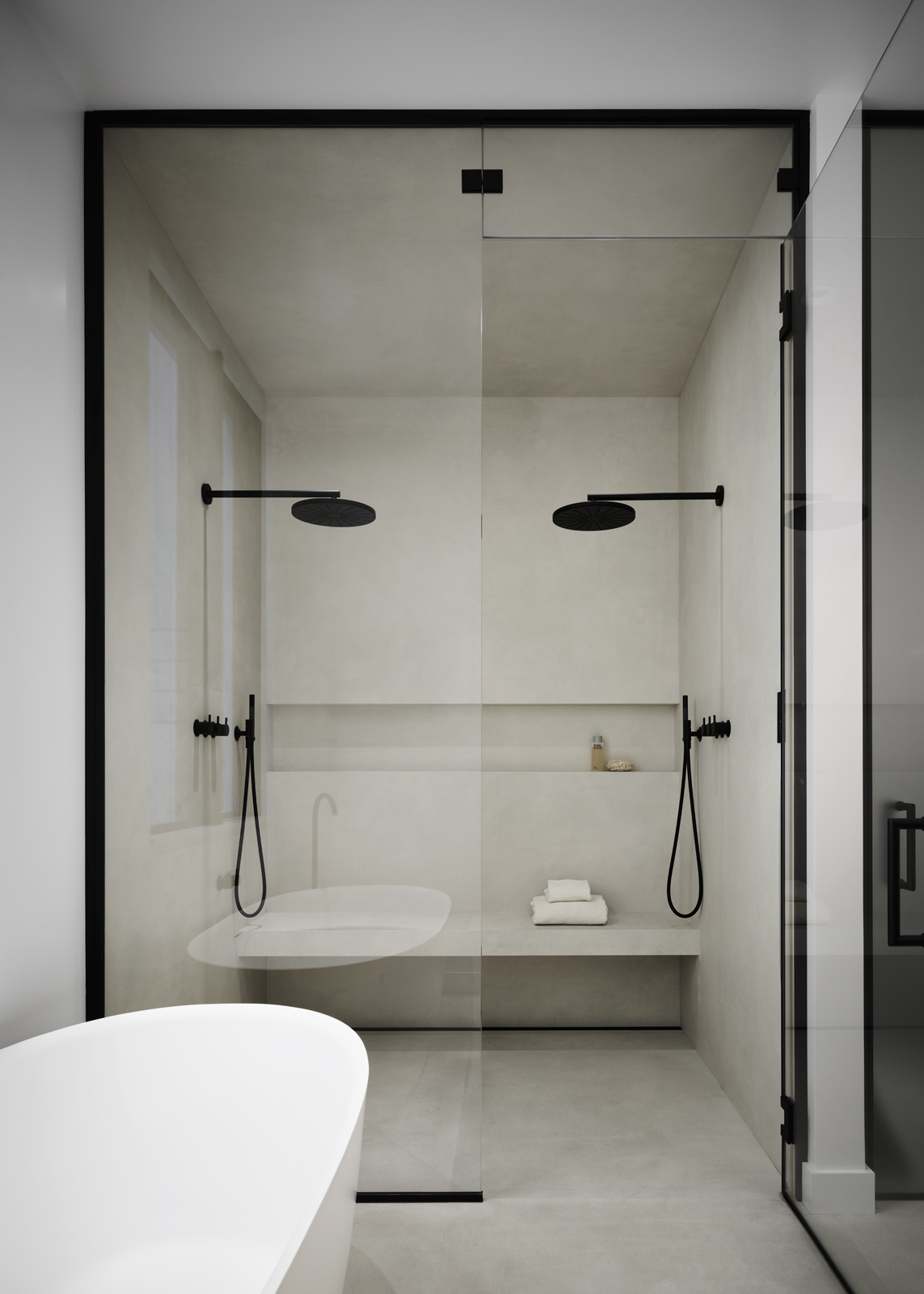
The easiest way to create a seamless small bathroom shower is to go in for a curbless design. These are also referred to as barrier-free or zero-entry showers. These are sometimes open concept spaces or ones with a thin glass partition, that all allow easy accessibility. Since these designs do not have proper sloping, there may be a risk of poor drainage and spills onto the bathroom floor. That's why in a feature like this, the entire floor needs to be pitched toward the drain in the shower so the room doesn't get wet.
'This shower offers excellent accessibility for those with mobility issues, seniors, or wheelchair users due to no threshold,' says Lauren Lerner, CEO and founder of Living with Lolo. 'It also provides a sleek, modern look, enhancing the bathroom aesthetic and creating a spacious feel. However, proper drainage is crucial to prevent water issues, potentially leading to complex installation and extra costs. Careful planning and waterproofing are needed for functionality and water management.'
2. Half-partitioned shower

A half-partitioned shower is usually a square format with two walls and one or two sheets of glass half enclosing it. These are great additions to small bathrooms where the half enclosure helps create a separate space for a shower while still giving the illusion of expanded space. Usually, these designs utilize clear glass and frameless doors that help light bounce around freely instead of being absorbed by solid walls which often give off feelings of confinement. But in cases where there is a need to create privacy, frosted glass works just as well.
'Half partitioned showers allow for a spacious feeling when there is not ample square footage to work with,' says Donna DuFresne, founder of Donna DuFresne Interior Design. 'It is a good way to separate the area without completely closing it off. A satin etched glass was selected to provide a level of privacy within the space.'
The Livingetc newsletters are your inside source for what’s shaping interiors now - and what’s next. Discover trend forecasts, smart style ideas, and curated shopping inspiration that brings design to life. Subscribe today and stay ahead of the curve.
3. Fully enclosed showers

The fully-enclosed style is a trending shower room idea. Whether the enclosure is made of a clean, sleek design that appeals to modern tastes or a simple and understated one with an elegant and classic look, the 'room within a room' look is instantly appealing.
In terms of shower wall styles, there are plenty of options available. Glass panels set into an aluminum frame look classy; and so do four panels of etched glass. If you want a bathroom that looks clean, sleek, and seamless, then a frameless shower enclosure is the way to go.
You can also go in for colored glass that will add a pop of hue to the room, as in the design pictured. 'The enclosure is made from a special type of glass known as 'float glass',' says Serhii Makhno, founder of MAKHNO. The unique color is achieved via a tinted film, which gives it that distinctive hue.
4. Inset showers
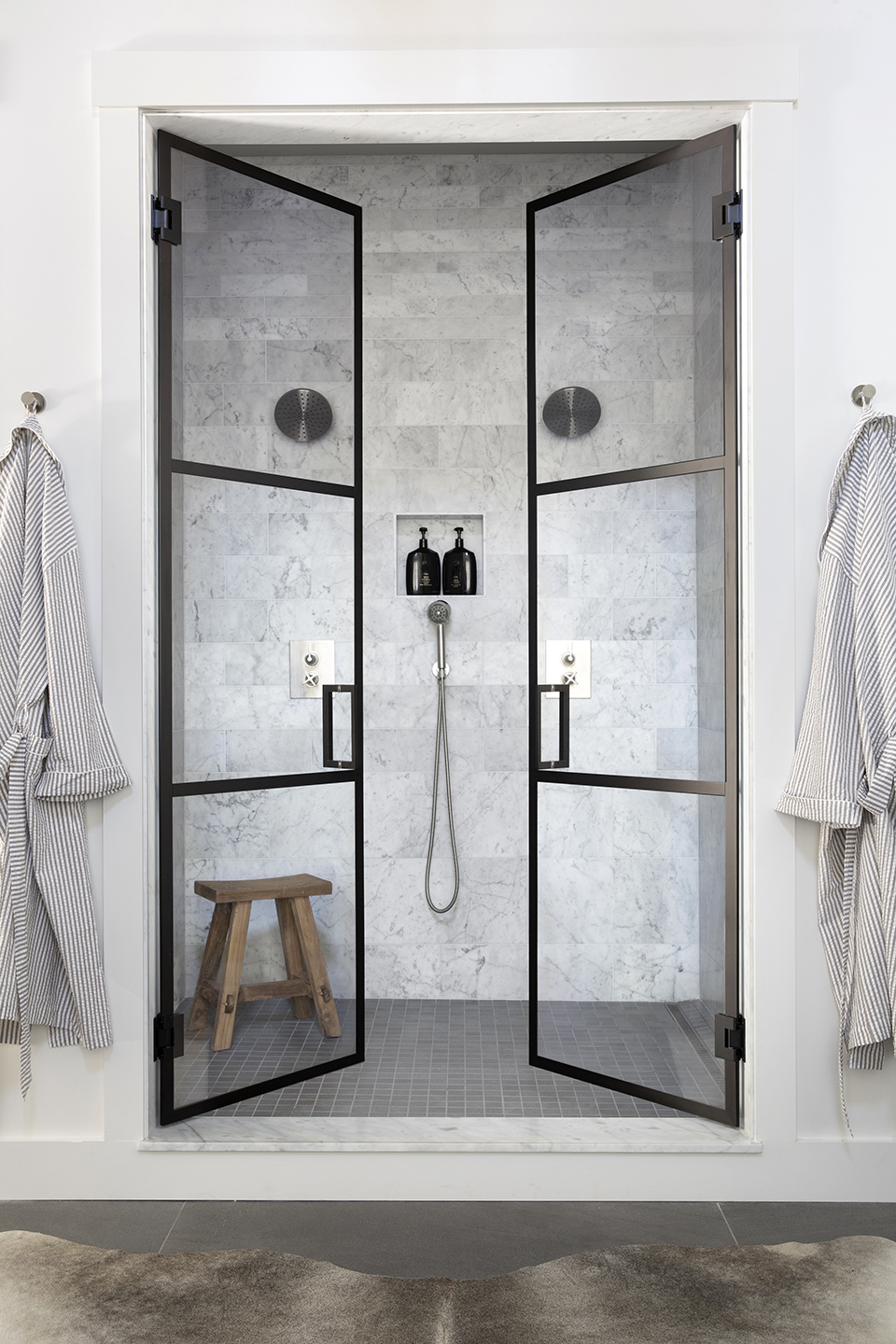
An inset shower is a type of shower enclosure set into a wall or niche. It has three-solid walls, with a glass-front. The type of door may vary, but in this example, it's a double door with a mullion design.
'We wanted a custom metal-frame door look (also known as a Mullioned Shower) but without the cost and difficult maintenance of true divided iron doors,' says Sondra Ganz of Studio Ganz. 'We went with Vista Grid Showers from HMI Glass. The glass contains an internal black grid printed with specialty ceramic fitted inks. Low-profile adhesive metal grid strips were then applied to the exterior glass to mimic the true divided look. The glass inside remains smooth for easy cleaning. It was the perfect nod to industrial meets vintage style.'
5. Step up showers
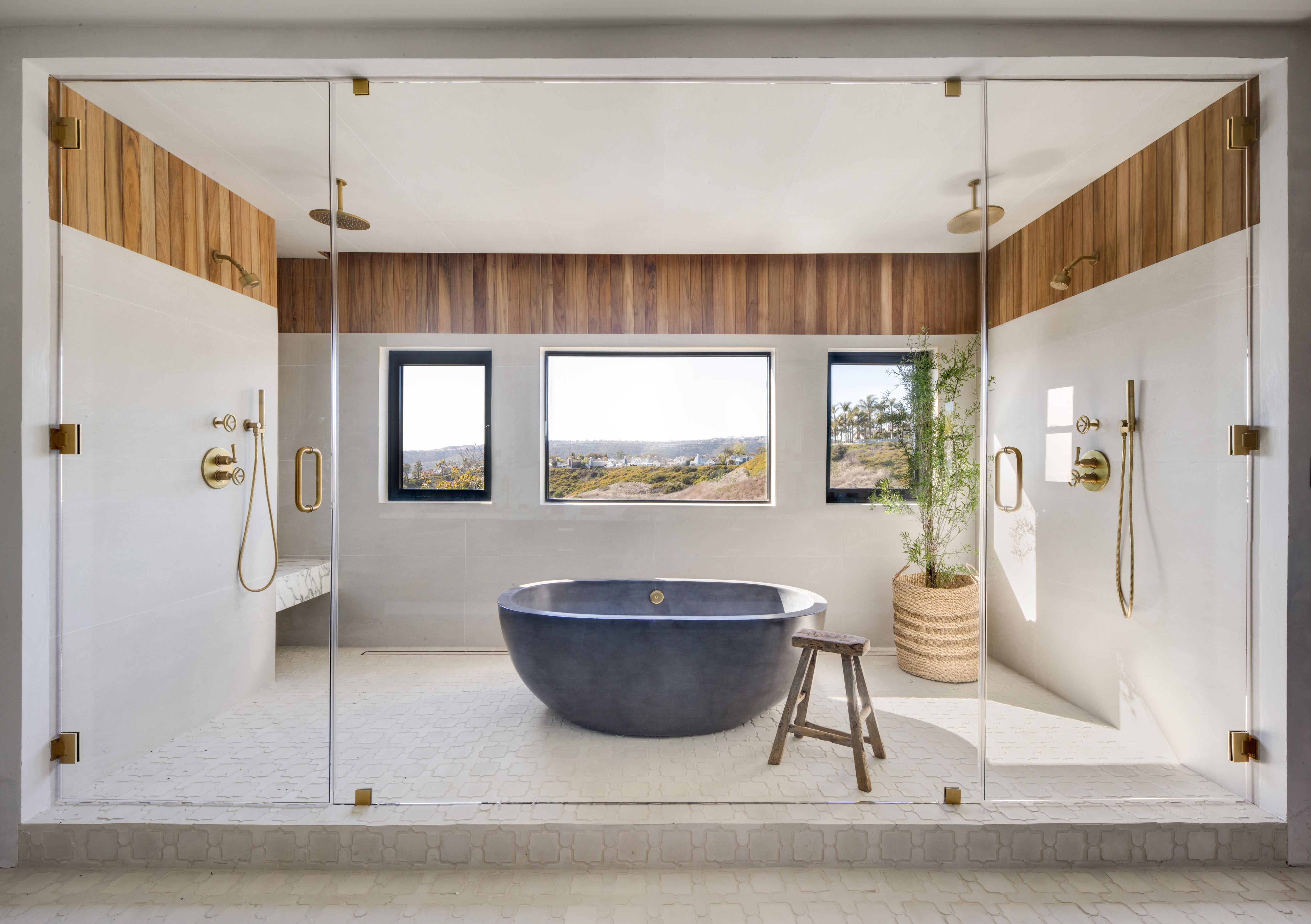
As the name suggests, this is a shower where the curbs are two to six inches above the shower drain, so you need to step up before entering the space. Usually, these are less expensive than other wet room styles.
'A walk-in shower and a step-up shower differ mainly in design and accessibility,' says Lauren. 'Walk-in showers are easily accessible, with no or very low thresholds, making them ideal for individuals with mobility issues or using wheelchairs. They often have a modern look with glass doors, panels, or even an open design. The shower floor is level with the bathroom or gently slopes toward the drain, providing a spacious area. In contrast, step-up showers have a raised threshold that one must step over. They typically have a traditional design with an elevated shower tray. The shower floor is higher than the bathroom floor, requiring a step-up. While step-up showers vary in size, they generally take up less space than walk-in showers.'
6. Shower bathtub combo
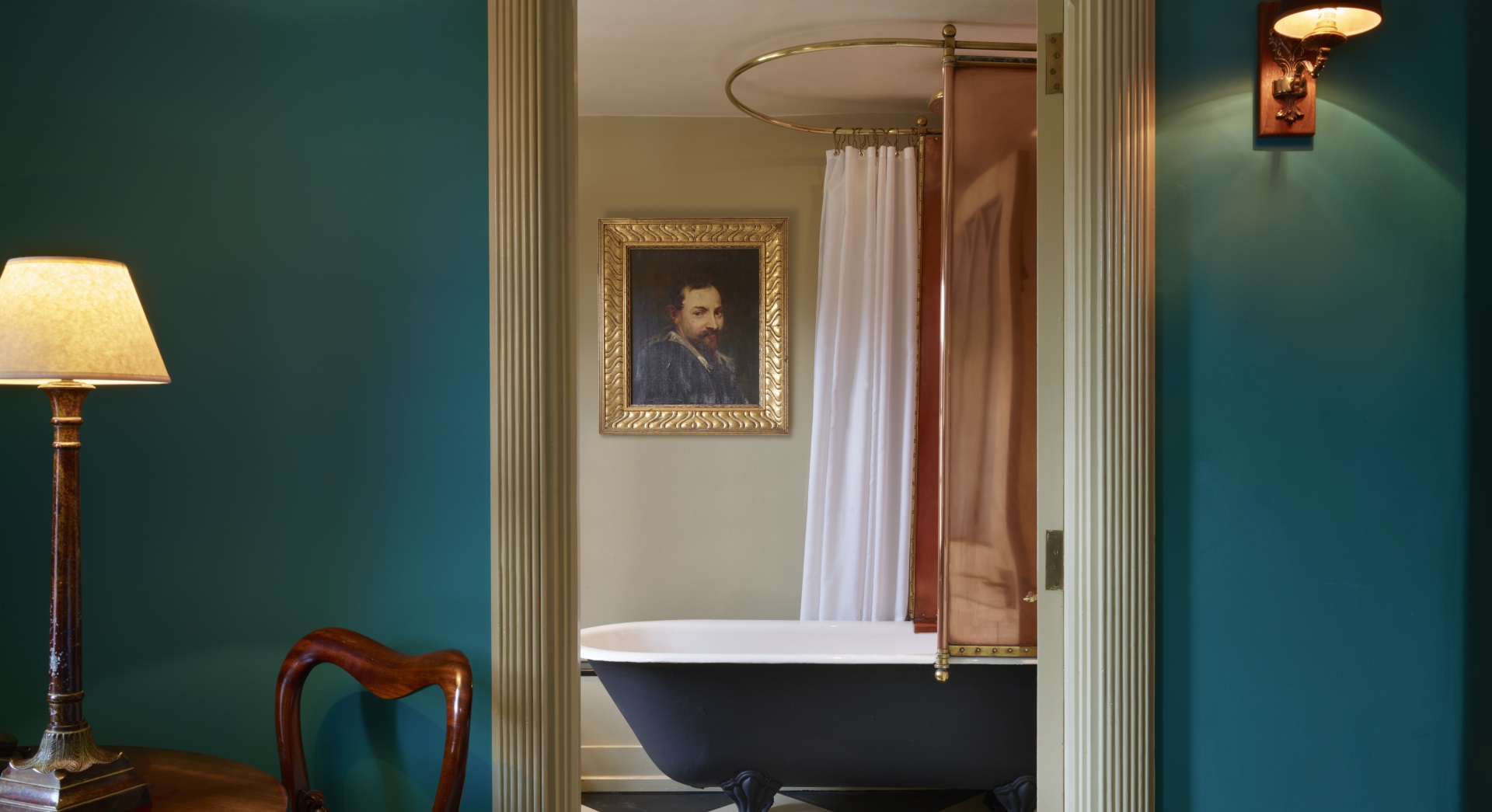
Retro blends with contemporary
A shower bathtub combo means that even a small space can do double duty. This design can be incorporated into a built in bathtub or over a freestanding tub. One thing to note is the measurements of the fixtures in this design. The overhead shower should be in exactly the right spot so that the water doesn't splash over the edges of the tub. And when you stand up, you do not hit your head.
While usually this design is enclosed behind a glass enclosure, you can also simply hang a curtain above to give the room a whimsical feel. 'When selecting the best materials for shower curtains, I typically gravitate toward linen curtains for a luxurious texture and timeless elegance,' says Marie Flanigan, founder of Marie Flanigan Interiors. 'A beautiful shower curtain adds a sophisticated touch to any bathroom, especially when coupled with a custom rod. Then, I add a shower liner to the inside to protect the fabric.'
7. Double showers

In homes with multiple family members, or in a shared bathroom, the presence of two or more showerheads is a great way to go. This creates a luxury bathroom vibe while also making the room multifunctional.
'In this New York City home, we aimed for functionality by installing two showerheads for maximum efficiency,' shares Marie. 'To honor the building's pre-war roots, we chose shower fixtures with exposed plumbing, staying true to the historic aesthetic.'
8. Outdoor showers
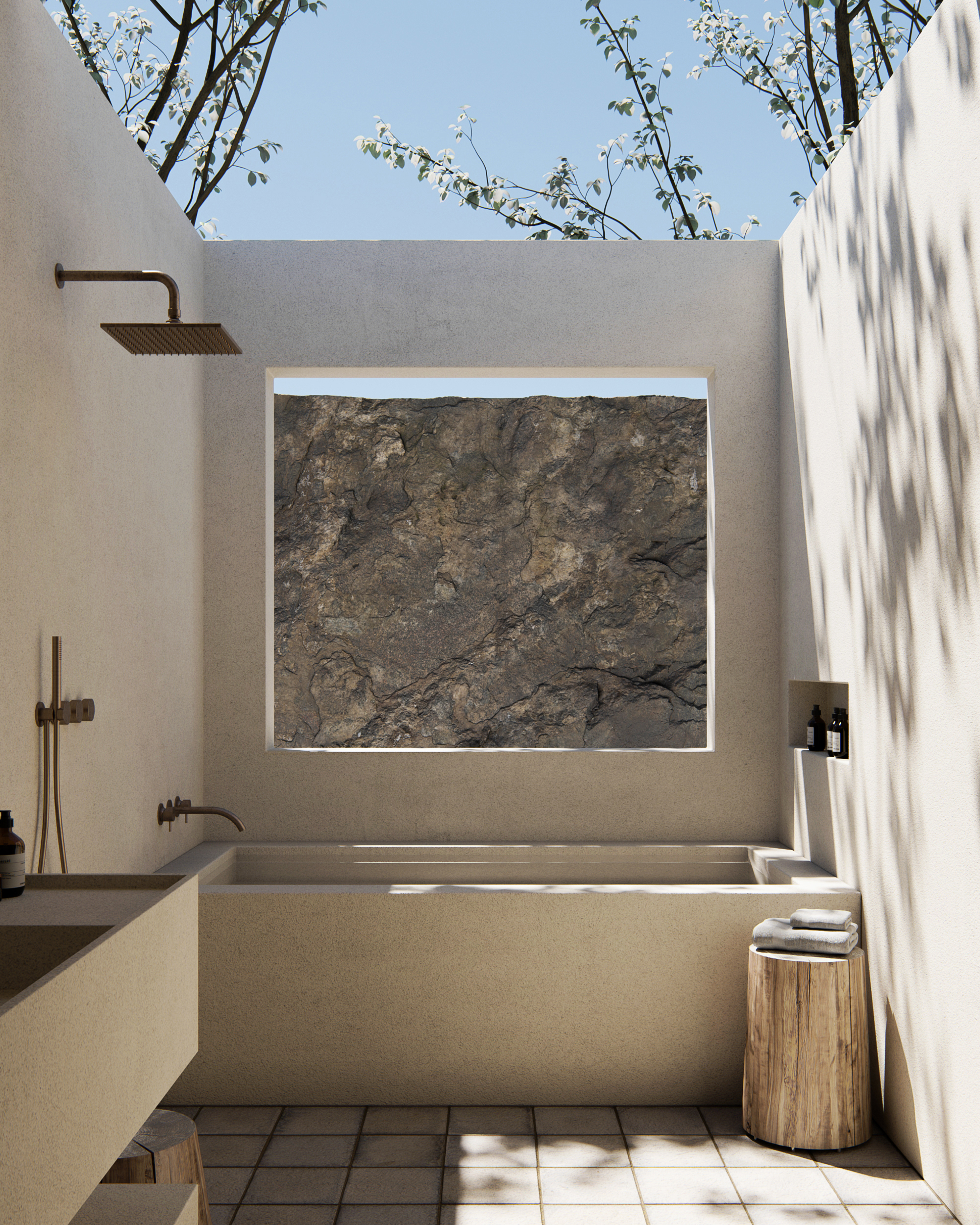
And finally, nothing spells pure luxury better than an outdoor shower. These make the mundane ritual of showering much more appealing, allowing you to savor the fresh air and even the views around. Plus, there are several designs available in these; from freestanding contemporary baths to built-in designs in unique materials.
'The main material here is stucco, with locally sourced clay tiles on the flooring,' says Javier Guevara of Nainoa. 'We used antique brass for all of the hardware. Since it's an outdoor shower we kept the materials combination as natural as possible.'
How to choose the best type of shower for your bathroom?
Various factors can influence the type of shower you should choose. One of course is the budget. If you want a shower that's not too costly, a good idea would be to go in for a curbless corner shower.
Walk-in showers are good for saving space as they eliminate the need for a bathtub and can be fit into any size of space. If you want to give your small bathroom a luxe yet functional touch, you could go in for a shower-bathtub combo design. Enclosed showers are great for large bathrooms where you can easily separate the wet and dry areas, without making the room feel small.

Aditi Sharma Maheshwari started her career at The Address (The Times of India), a tabloid on interiors and art. She wrote profiles of Indian artists, designers, and architects, and covered inspiring houses and commercial properties. After four years, she moved to ELLE DECOR as a senior features writer, where she contributed to the magazine and website, and also worked alongside the events team on India Design ID — the brand’s 10-day, annual design show. She wrote across topics: from designer interviews, and house tours, to new product launches, shopping pages, and reviews. After three years, she was hired as the senior editor at Houzz. The website content focused on practical advice on decorating the home and making design feel more approachable. She created fresh series on budget buys, design hacks, and DIYs, all backed with expert advice. Equipped with sizable knowledge of the industry and with a good network, she moved to Architectural Digest (Conde Nast) as the digital editor. The publication's focus was on high-end design, and her content highlighted A-listers, starchitects, and high-concept products, all customized for an audience that loves and invests in luxury. After a two-year stint, she moved to the UK and was hired at Livingetc as a design editor. She now freelances for a variety of interiors publications.
